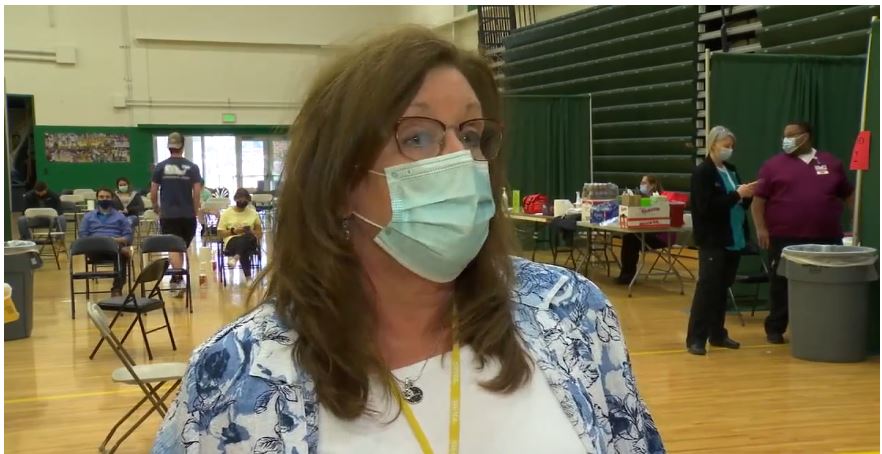
[This piece was written by Jennifer Ryan, MSN, RN, CIC, CEN, Manager, Infection Prevention for St. Peter’s Hospital.]
Everyone knows about the flu, but not all know how deadly it can be. Each year more than 200,000 Americans are hospitalized due to influenza, mostly the very young, the elderly, and people with heart or breathing conditions (like emphysema or asthma).
For the very young, especially those with heart and lung defects or a history of seizures, the flu can be particularly dangerous. These populations are at high risk for severe complications from the flu, including an increased risk of seizures, viral pneumonia, respiratory failure, prolonged hospitalization, and even death.
The flu season is well underway, with the Centers for Disease Control and Prevention (CDC) announcing last week the strains of influenza seen so far have been well matched by this year’s vaccine. That is great news for those individuals who have already received the vaccine and it should motivate those who have NOT yet gotten the vaccine to do so ASAP!
Influenza is a respiratory infection caused by one of several viruses. Some tell-tale signs of the flu are:
- Sudden onset of illness;
- A fever over 101 degrees that lasts three to four days;
- Headache;
- Tiredness/weakness that can last from two to three weeks;
- Muscle aches and pains; and
- Chest discomfort
Hygiene is key to fighting the flu – you should wash your hands frequently, and be sure to cover your coughs and sneezes. And the best prevention against the flu is to get vaccinated.
The CDC recommends vaccination for everyone six months of age and older. Points to remember:
- Vaccines are safer and more effective today than ever before.
- Vaccines don’t weaken the immune system as you might read on the Internet. Vaccines actually boost the immune system.
- The flu IS NOT CAUSED by the vaccine.
- It takes about two weeks for full protection to develop.
There is a small group of people who should not receive a flu vaccine because of severe allergies or certain pre-existing conditions. Ask your doctor if there is any reason that you should NOT receive a flu shot.
It is important to note scientists put a great deal of energy every year into studying which strains will be most prominent. Though there are times where not every vaccine strain is a perfect match with the most prevalent strain in our region, it will nonetheless confer some degree of protection — and certainly, some protection beats none!





